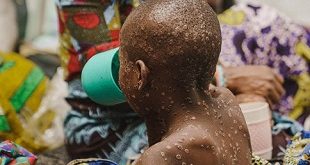
Kampala, Uganda | THE INDEPENDENT | over 300,000 Africans could lose their lives due to COVID-19, according to a new report by The Economic Commission for Africa (ECA).
The report, launched virtually today, says Africa’s fragile health systems could see additional costs being imposed on them because of the growing crisis that has to-date, resulted in over 16,000 infected Africans and claimed over 800 lives at the time of the report’s launch. Across the globe, COVID-19 cases have surpassed 2 million with over 120,000 lives lost.
The figures are based on four model scenarios based on preventive measures introduced by African governments, a number of which announced lockdowns, night-time curfews, closed schools, churches and other public spaces, and advised all their nationals to stay home. Uganda has just extended the measures for another 21 days.
The report shows that on the total absence of such interventions, over 1.2 billion Africans would be infected and 3.3 million would die this year. But with the interventions in place, the continent will have 122.8 million infections, 2.3 million hospitalizations and 300,000 deaths, according to the report. Africa has a total population of around 1.3 billion people.
UN Under-Secretary-General and Executive Secretary, Economic Commission for Africa Vera Songwe says that Africa is particularly susceptible because 56 per cent of its urban population is concentrated in slums or informal dwellings and only 34 per cent of African households have access to basic handwashing facilities.
She says that the continent urgently needs USD 100 billion to provide fiscal space to all countries to help address the immediate safety net needs of the populations. The Report notes that Africa’s small and medium enterprises risk complete closure if there is no immediate support.
“Across the continent, all economies are suffering from the sudden shock to the economies. The physical distancing needed to manage the pandemic is suffocating and drowning economic activity,” she adds.
The price of oil, which accounts for 40 per cent of Africa’s exports has halved in value and major African exports, such as textiles and fresh-cut flowers have crashed. Tourism, which accounts for up to 38 per cent of some African countries’ GDP, has effectively halted as has the airline industry that supports it.
This, as the pandemic continues to impact on the Continent’s struggling economies whose growth is expected to slow down from 3.2 per cent to 1.8 per cent in a best-case scenario, pushing close to 27 million people into extreme poverty.
On mitigation, the Report outlines a number of concerted efforts to keep trade flowing, especially in essential medical supplies and staple foods, with a strong policy push to fight the urge to impose export bans. It also proposes that intellectual property on medical supplies, novel testing kits and vaccines must be shared to help Africa’s private sector play a role in the response.
Songwe also notes that the private sector needs liquidity, but it also needs partners. “That is why we call on the international community to support by injecting more liquidity into our economies,” she adds.
She stresses the need for never-before-seen assistance through innovative financing facilities, stating, “We must build back better, by ensuring that we are climate-conscious in rebuilding and by leveraging the digital economy.”
*******
URN
 The Independent Uganda: You get the Truth we Pay the Price
The Independent Uganda: You get the Truth we Pay the Price



